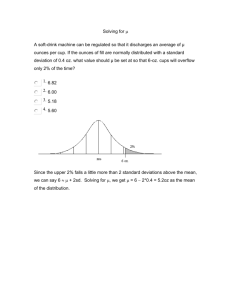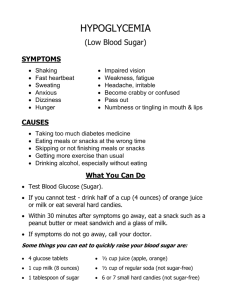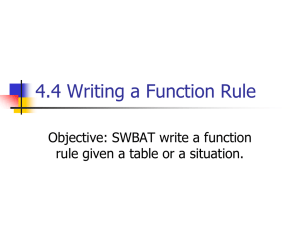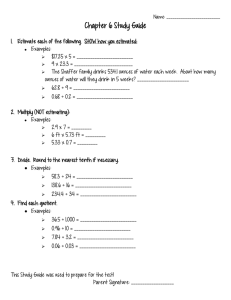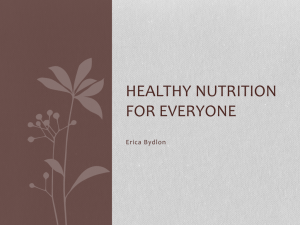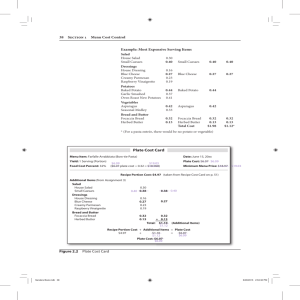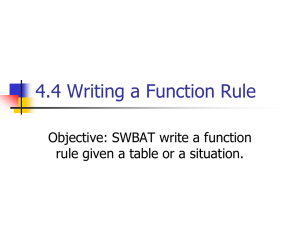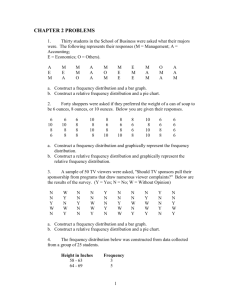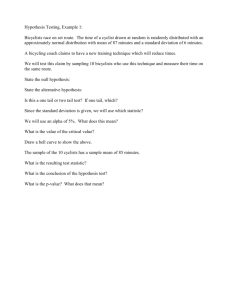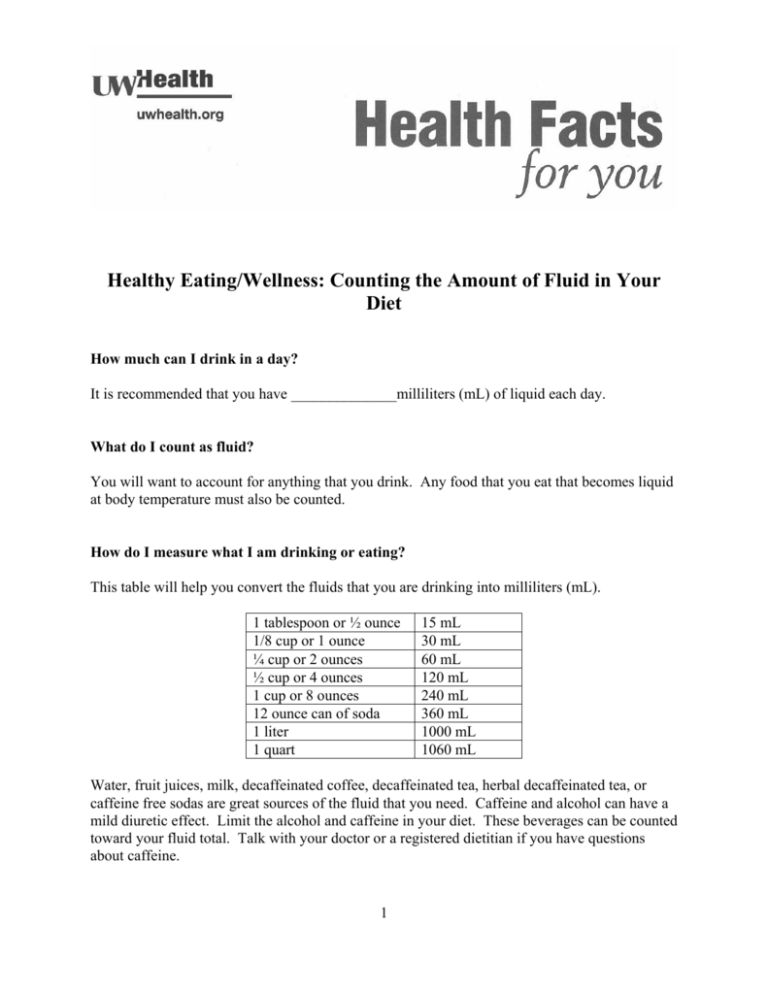
Healthy Eating/Wellness: Counting the Amount of Fluid in Your
Diet
How much can I drink in a day?
It is recommended that you have ______________milliliters (mL) of liquid each day.
What do I count as fluid?
You will want to account for anything that you drink. Any food that you eat that becomes liquid
at body temperature must also be counted.
How do I measure what I am drinking or eating?
This table will help you convert the fluids that you are drinking into milliliters (mL).
1 tablespoon or ½ ounce
1/8 cup or 1 ounce
¼ cup or 2 ounces
½ cup or 4 ounces
1 cup or 8 ounces
12 ounce can of soda
1 liter
1 quart
15 mL
30 mL
60 mL
120 mL
240 mL
360 mL
1000 mL
1060 mL
Water, fruit juices, milk, decaffeinated coffee, decaffeinated tea, herbal decaffeinated tea, or
caffeine free sodas are great sources of the fluid that you need. Caffeine and alcohol can have a
mild diuretic effect. Limit the alcohol and caffeine in your diet. These beverages can be counted
toward your fluid total. Talk with your doctor or a registered dietitian if you have questions
about caffeine.
1
This table will help you account for foods that count as liquid.
Food
Ice cube
Fruit juice
Soda with ice
Creamer
Milk, Lactaid Milk,
soy milk, rice milk,
almond milk
Ice cream
Milk shake
Yogurt
Pudding
Jello®, plain
Popsicle
Sherbet
Sorbet
Italian fruit ice
High protein shake
Soup with
vegetables, rice,
pasta
Creamed soup
Clear broth
Yogurt
Watermelon
Kool-aid®
Thickened milk
Thickened juice
Ice cream Sandwich
Amount
1 cube
4 ounces or ½ cup
8 ounce glass
3/8 ounce
8 ounces or 1 cup
mL
20 mL
120 mL
270 mL
11 mL
240 mL
4 ounces or ½ cup
1 glass or 5 ounces
6 ounces
½ cup
½ cup
1 twin bar
½ cup
½ cup
4 ounce cup
1 cup
6 ounces
80 mL
190 mL
180 mL
100 mL
90 mL
90 mL
75 mL
75 mL
80 mL
240 mL
100 mL
6 ounces
6 ounces
6 ounces
1 cup
8 ounces or 1 cup
Pre-packaged
Pre-packaged
1
180 mL
180 mL
180 mL
210 mL
240 mL
236 ml
118 ml
80 ml
You might find it helpful to write down what you are eating and drinking and keep a running
total for the day.
2
Teach Back:
What is the most important thing you learned from this handout?
What changes will you make in your diet/lifestyle, based on what you learned today?
If you are a UW Health patient and have more questions please contact UW Health at one of the
phone numbers listed below. You can also visit our website at www.uwhealth.org/nutrition
Nutrition clinics for UW Hospital and Clinics (UWHC) and American Family Children’s
Hospital (AFCH) can be reached at: (608) 890-5500
Nutrition clinics for UW Medical Foundation (UWMF) can be reached at:
(608) 287-2770
Copyright © 1/2014. University of Wisconsin Hospitals and Clinics Authority. All rights reserved. Produced by the
Clinical Nutrition Services Department and the Department of Nursing HF#475
3

